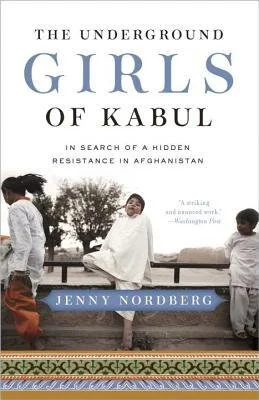The Body Keeps the Score by Bessel A. van der Kolk
Title: The Body Keeps the Score
Author: Bessel A. van der Kolk
Published: 2014
Type: Nonfiction
Pages: 443
Traumatized people chronically feel unsafe inside their bodies: The past is alive in the form of gnawing interior discomfort. Their bodies are constantly bombarded by visceral warning signs, and, in an attempt to control these processes, they often become expert at ignoring their gut feelings and in numbing awareness of what is played out inside. They learn to hide from their selves.
In Brief:
A really fascinating study on the impacts and healing of trauma. The author does a good job combining anecdotes with scientific explanations, making it accessible to anyone, though he could be a bit annoyingly self-congratulatory/pitying.
Rating: 3.8
Synopsis:
“Renowned trauma expert Bessel van der Kolk has spent over three decades working with survivors. In The Body Keeps the Score, he transforms our understanding of traumatic stress, revealing how it literally rearranges the brain’s wiring—specifically areas dedicated to pleasure, engagement, control, and trust. He shows how these areas can be reactivated through innovative treatments including neurofeedback, mindfulness techniques, play, yoga, and other therapies. Based on Dr. van der Kolk’s own research and that of other leading specialists, The Body Keeps the Score offers proven alternatives to drugs and talk therapy—and a way to reclaim lives.”
Where I’m At:
I think I’m going to mostly skip this section this time. Surprisingly, there are a few things I still don’t want the internet to know, or that I don’t want to bring up again. This sounds mysterious or concerning, so rest assured that I haven’t been through anything that comes anywhere fathomably close to the experiences of van der Kolk’s patients. But I do see a therapist (I don’t mind sharing that much at all), and reading the book did resonate in small ways.
Oh, it’s also relevant to add that I came to this book with exactly zero scientific academic background – remember that this author-man is a Very Serious MD. I think I might have gotten more out of the book if I could have followed his more technical tangents, but overall he did a really good job making it approachable to someone like me. I’ll get into that!
Getting Into it:
This post will be relatively short, mostly because my lack of knowledge on the subject is so gaping I really don’t know how to even begin evaluating.
So I’ll keep it simple. I liked that van der Kolk addressed trauma head-on, speaking about it in a way that was frank and comprehensible, even though the topic is still so taboo. He goes into that, too. He doesn’t get too lost in the weeds of the science or medical side of things, but he does it enough to deliver a clear message: this is biological. Trauma is stored in the body, in a way we can’t just “get over,” or control. You’re not “just crazy.” And there are ways to heal. He’s not just intelligent (though he is) – he’s also compassionate. He seems to genuinely care about not just his patients but also his readers. Again, he makes his research accessible, but he doesn’t seem to be dumbing it down or talking down to you as the reader – he’s trying to help. I learned a lot from reading it.
I didn’t like that sometimes van der Kolk’s descriptions could be very graphic, and I don’t know if they necessarily had to be – there’s a line where it must become trauma porn, and he at least came very close. I felt physically uncomfortable, even had to skim over some of those parts or put the book down, it was so upsetting to read. I also didn’t like that his tone could be rather pompous – there was sort of an “I was doing this research before it was cool!” kind of vibe, and though he doubtlessly deserves credit and is probably justified, it just sort of turned me off and made me feel less inclined to want to read more of him. Furthermore, I found that the book was a bit disorganized, jumping around between anecdotes that didn’t clearly connect.
And that’s all! A very lazy blog post, but I just feel like I don’t have too much to say about this book, or enough knowledge to really comment. I’d probably recommend it to more to people with a more science-focused academic background, but I also think it could be really useful for those trying to understand trauma and learn about ways to heal.






